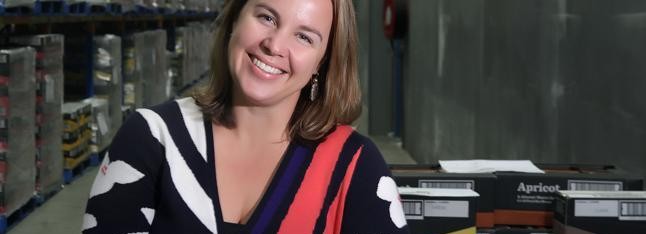The number of women on the BRW Young Rich list has sadly more than halved since its inception almost a decade ago.
In 2003, the percentage of women on the list was 22 per cent (14 of 63 on the list were female) while this year it’s dropped to 6 per cent, with just six women making a list of 100.
At 38-years-of-age, Victorian winner of the Telstra Business Woman of the Year and Carman’s Fine Foods founder and managing director Carolyn Creswell is the richest woman on the list with a wealth of $50 million.
The other five women to make the list are sass & bide fashion business stars Sarah-Jane Clarke and Heidi Middleton, the woman who runs heavy equipment business EA Hire Equipment with her husband (Laurence Eales) Prue Eales, Morrison designer Kylie Radford and golfer Karrie Webb.
In 2011, there were eight women on the list. Two women have dropped off this year – Bloom cosmetics empire boss Natalie Bloom, who turned 41 this year, passing the list’s cut-off point of 40, and kikki.K stationary store founder Kristina Karlsson as a result of the retail sector downturn.
In a country where more women are reported to be starting their own businesses, the question remains, why aren’t women getting as rich as men and as quickly in their lifecycle? The answer: they either don’t want to or simply can’t.
Women who want to have a family, usually want to do it before or at least by 40. The role of the primary carer makes it nearly impossible to balance those commitments with working over time to build up a business. That’s not to say it can’t be done. Creswell is the perfect example of how to juggle a business empire and young children.
But for most women – who only last year won the legislated right to have paid parental leave – the reality of not being able to take time off work to care for a child makes an either or choice and therefore unrealistic for a woman to set a goal of becoming a self-made millionaire in her 20s or 30s.
The other barrier, according to Australian Women Chamber of Commerce and Industry chief executive Yolanda Vega, is that women can’t get as easy access to capital as men. “Our research shows the majority of women business owners start within the service industry, so they cant get access capital; an angel investor won’t look at you unless you have fabulous app that’s going to make $5 million overnight,” she says.
Because women usually are the primary carers, they also don’t take as many risks early in their careers as men, such as putting their house on the line to try to obtain funding. “Men will take more risks and put everything on the line for their business and may end up making more money because of it. Women grow more organically and don’t necessarily want to make billions,” Vega says.
Regardless of whether they want to or not, until the social and business structures we operate within change, things such as better and more affordable child care and more flexible work arrangements, women will continue to be under-represented on rich lists, in high-level corporate roles and on boards.













